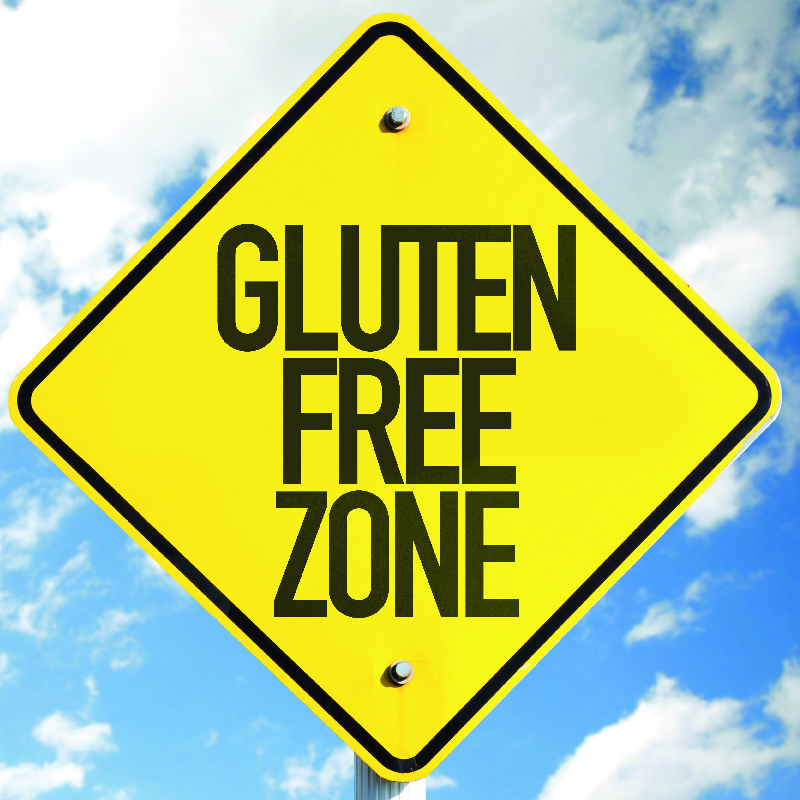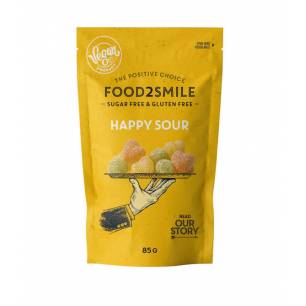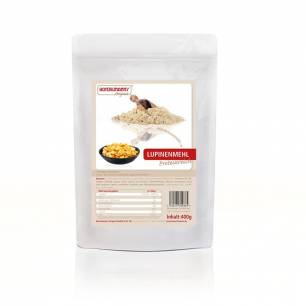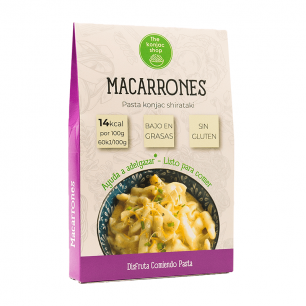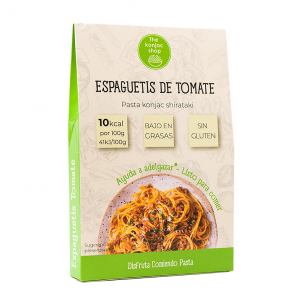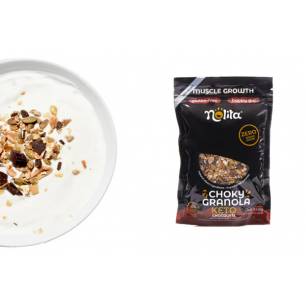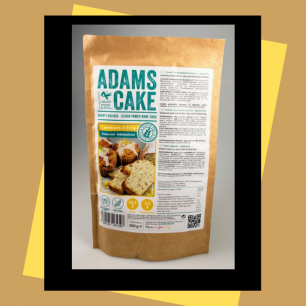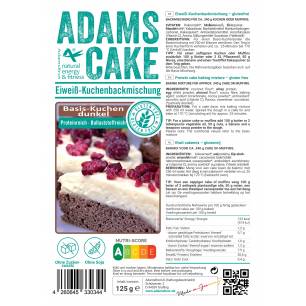

Gluten-free diet
Gluten Free Candy
Gluten free flours
Gluten Free Pasta
Granola gluten free
Gluten free cake mix
The gluten-free diet
More and more people are turning to a gluten-free diet for a variety of reasons: celiac disease (gluten intolerance), Low-Carb or Keto eating style... When you are hypersensitive to gluten, you realize that many foods contain this substance. In our industrial food products, in flour, bread and many other products that accompany our meals. When you are diagnosed with an intolerance, the questioning is immediate. What can you eat? Déliceslowcarb will help you establish a gluten-free diet with its wide selection of products.
The gluten-free diet what is it?
Gluten is a family of proteins (called prolamins) found in grains, including wheat, rye, spelt and barley. Wheat is the most common (it is the basis of bread, pasta, cakes, cookies, beer, cereals, etc.). There are basically two proteins in wheat gluten: gliadin and glutenin. Gliadin is the one that has the most negative effects on health. Secalins are found in rye and hordeins, in barley.
What is gluten used for?
Gluten gives seed-based preparations a special, chewy texture. For example, in bread, gluten proteins provide elasticity and retain gas, allowing the bread to rise and retain moisture. Because of these unique physical properties, gluten is frequently added to processed foods to improve texture and promote moisture retention.
What effect does gluten have on the body?
Gluten proteins are highly resistant to protease enzymes, those that will break down proteins in the digestive tract; this incomplete digestion of proteins will allow peptides (large units of amino acids, the building blocks of proteins) to pass through the wall of the small intestine and wander" freely through the body.
This can trigger immune responses, including inflammation, that are linked to a number of conditions, such as celiac disease.
Integrating gluten-free into our eating habits
Switching to a gluten-free rdiet may from the outside look complicated. It is true that we quickly realize that the presence of gluten is important in our daily lives.It is found in:
- Our breads
- Our flours
- Our cereals
- Our pie dough or Our pizza dough
- Our cakes.
And the list goes on. Products that contain gluten are sometimes the cause of disease such as Celiac disease known as celiac. The effect of this hypersensitivity to a destructive effect on the digestive system. The most commonly used flour containing the most gluten is wheat flour. Although it is known to be present in a large number of food products, it is easily replaced by flour:
All of these flours are available at Delicatessenslowcarb. But flour isn't the only gluten-free product we can incorporate into our meals. Besides rice which is a gluten-free starch we can find products such as:
- Oats
- Palm heart pasta
- Soybean pasta
- Pea flour pasta
- Konjac pasta and rice
- Muesli (gluten free)
As well as all green vegetables (excluding starches). These products are easy to access on Déliceslowcarb and especially simple to use in your dishes.
Gluten free, why?
Many modern researches show (without definitive proof) a correlation but not necessarily a causality between a consumption of gluten with the triggering or aggravation of autoimmune diseases, such as:
- diabetes type 1
- Hashimoto's thyroiditis
- Grave's disease
- rheumatoid arthritis.
These studies show that autoimmune diseases share common immune pathways and genes with celiac disease.
One of the mechanisms studied regarding gluten as a trigger for these diseases is molecular mimicry, when a foreign antigen-a substance that promotes an immune response-shares similarities with the body's antigens.
Thus, consuming foods rich in these antigens (gluten) could lead to the creation of antibodies that harm health.
One of the most common health concerns in the modern population is irritable bowel syndrome - gluten has been linked to this kind of bowel disease, as well as inflammatory bowel diseases such as Crohn's disease and ulcerative colitis.
The types of diseases caused by gluten
There are four types of diseases related to gluten consumption:
- wheat allergy
- non-celiac gluten sensitivity
- gluten intolerance
- celiac disease.
Wheat allergy
Wheat allergy causes the body's immune system to react to certain proteins found in wheat, including gluten, and occurs more frequently in children than in adults. Symptoms include:
- Rash
- Digestive upset
- Nausea, vomiting
- Cramps, diarrhea, bloating, indigestion
- Nasal congestion, and anaphylaxis
- A severe and potentially life-threatening allergic reaction if not treated in time.
Non-celiac gluten sensitivity
Non-celiac gluten sensitivity is thought to affect between 0.5% to 13% of people worldwide. You can find referenced studies (DOI) regarding the risks and discomforts. These people do not test positive for celiac disease or wheat allergy, but experience symptoms of discomfort after consuming products with gluten.
The symptoms are similar to those of celiac disease:
stomach pain, bloating, fatigue, and eczema or a skin rash. These symptoms may be caused by other irritants such as FODMAPS, short-chain carbohydrates that can cause digestive problems, which is why this disease is causing controversy among the scientific community.
Gluten intolerance
Unlike gluten allergy, people with gluten intolerance do not risk their lives when they take in gluten, but may experience very unpleasant symptoms: fatigue, bloating, abdominal pain, nausea,
diarrhea, constipation, muscle aches, anxiety, headaches, body sleepiness, muscle and joint pain, confusion and itchy skin.
Celiac disease
Celiac disease affects about to 1% of the world's population. In this autoimmune disease, the body sees gluten as a threat. To eliminate it, it attacks the gluten proteins. This attack also affects the surrounding areas, such as the intestinal wall, which can lead to nutrient deficiencies, severe digestive problems and anemia.
Symptoms include acute abdominal pain, constipation, rash, diarrhea, stomach upset, bloating, sudden weight loss, anemia, fatigue and depression.
Towards Gluten-Free in Our Nutrition
Gluten is a protein found in certain seeds, particularly wheat, which is a major source of the modern diet. This has been associated with inflammatory processes and autoimmune diseases. Removing it from the diet or at least reducing it could have many health benefits. A ketogenic diet eliminates any type of gluten-based food and is also an anti-inflammatory way of eating, which increases the benefits of removing gluten.
- "
